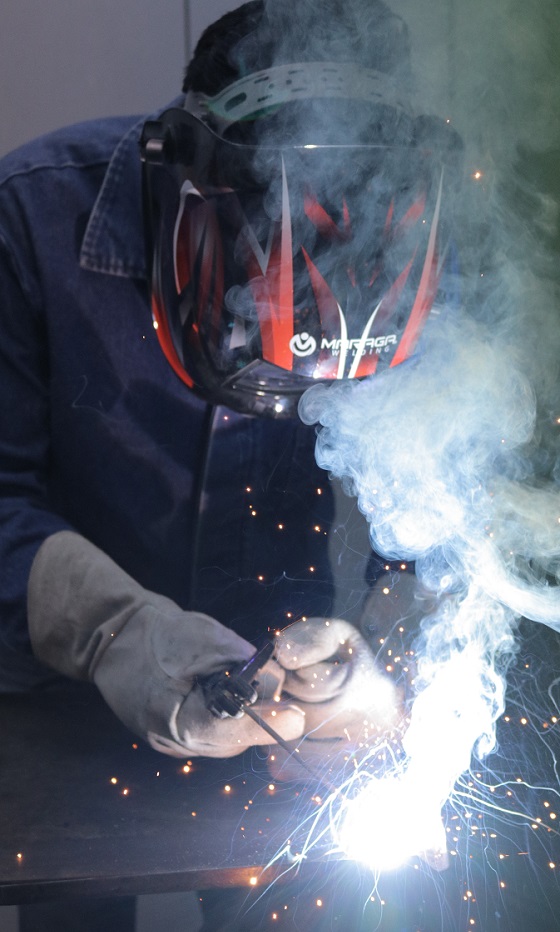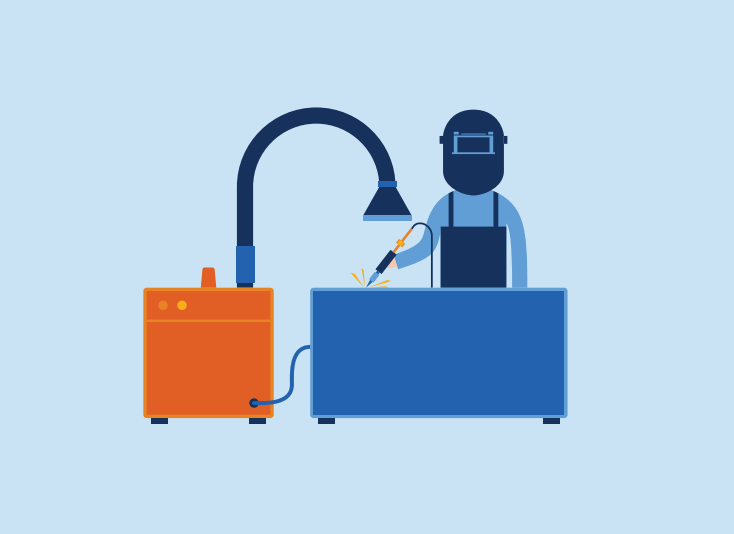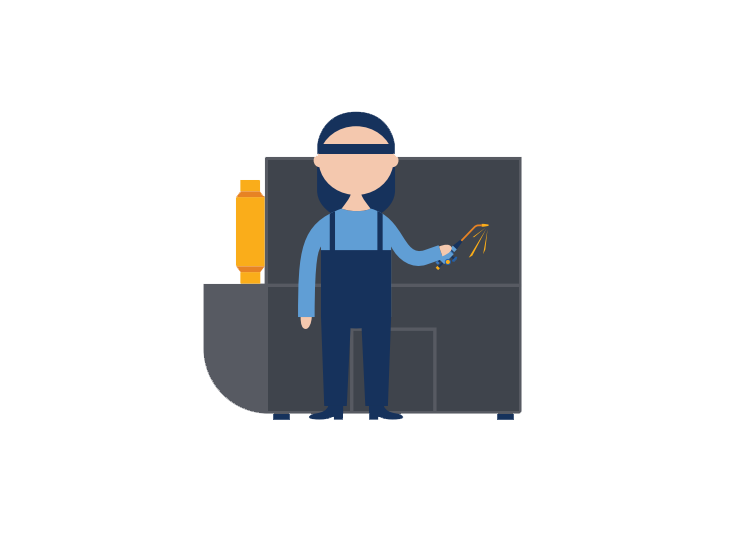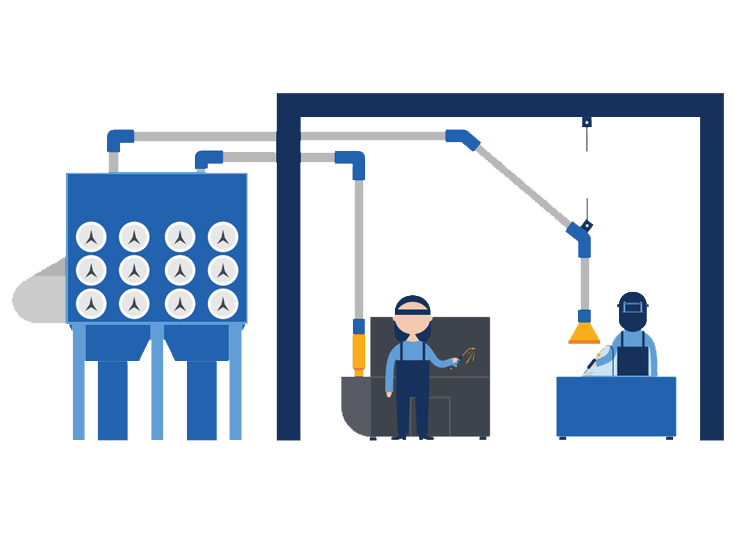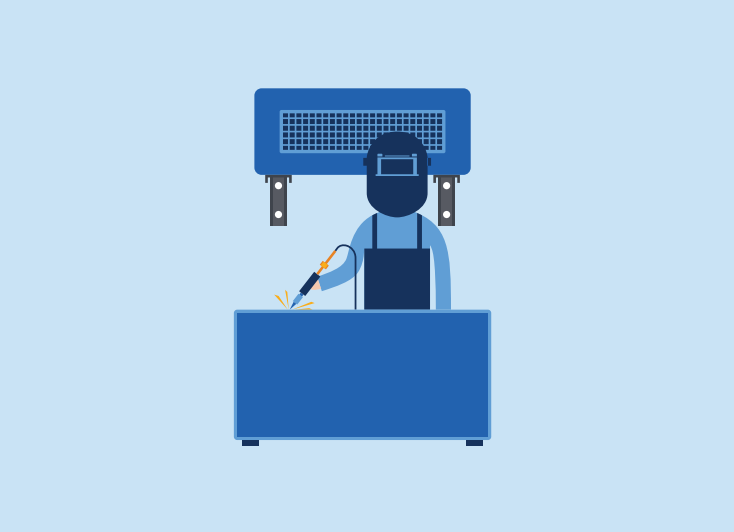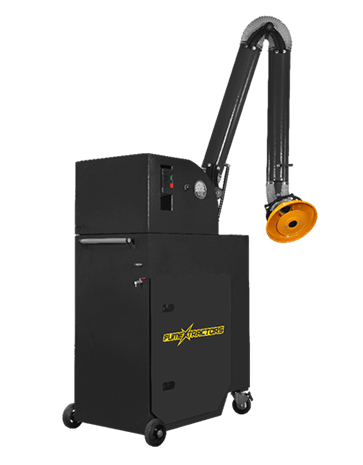What to ask when choosing a welding fume extractor
The first thing to know about choosing a fume extractor is that it will vary depending on your application demands. When metals and alloys are welded, toxic fumes release into the airstream and settle on floors and surfaces raising the risks of employee injury and equipment malfunction.
The fume and gases produced from welding and other machining processes must be captured and controlled to ensure a safe and risk-free working environment.
Without a way to control and capture these contaminants, there is an increased risk of health and safety injuries and production loss - which is why it's important to collect fumes as close to the source as possible using a fume extraction system.
Welding fume extraction systems capture and filter dangerous fumes, smoke, and other airborne contaminants before they reach breathing zones. It's crucial to choose the proper fume extractor for your specific application but before you do, here are questions you should ask!
How Big is Your Facility or Workshop?
The type of fume extractor and the number of systems required for your application will vary based on how much floor space and wall space you're working with. Facilities that have machining processes confined to a specific area or have limited floor space may benefit more from a fixed system - while applications, where adaptability is required, may benefit more from a flexible system.
How Much Welding Takes Place?
Based on how many hours per day/month that welding or other machining processes take place will determine what type of fume extractor meets your requirements.
If welding is only done occasionally in your workplace, you may prefer lighter portable units that offer flexibility and can easily be stored. If you're working in a facility where welding takes place 8+ hours a day, you may prefer fume extraction systems that provide longer filter lives and are self-cleaning.
What Regulations Need to Be Met?
Remain current on OSHA, NIOSH, state, and local regulations to ensure that your facility or workshop meets standards.
For example, according to NFPA 484, it is against OSHA standards to utilize a dry downdraft table for combustible dust control (such as Aluminum or Titanium). A wet downdraft table is required in any facility where explosive dust is present.
Does the Filter Meet Your Application Requirements?
It's critical to choose a fume extraction system that comes equipped with a filter that's capable of meeting your application demands. The proper filter configuration prevents issues like frequent filter changes, filter overload, and equipment malfunction.
Does the Fume Extractor Offer Flexibility?
If applications or machining processes involve metals that can create explosive dust, such as aluminum, magnesium, titanium, a wet downdraft table is right for you. To keep combustible dust controlled, it has to be captured at the source.
Is the Fume Extractor User-Friendly?
Flexibility is key in the comfort and efficiency of machine operators. Fume extraction systems that provide smooth articulation are easier to move around work projects, or out of the way when not needed
If you're working in a small space or a shop where machining isn't frequent you might benefit from a portable fume extractor. If you're working in a large facility, or in a facility where machining is frequent, you may be interested in a larger or fixed fume extraction system.
Does the Fume Extractor Meet Your Required Airflow?
Fume extraction systems must meet the CFM requirements of your application. There is a range of things that impact the airflow required by a machining process - for professional assistance, get in touch with our team of experts.
Fume Xtractors was developed to combat the health hazards that industrial machine operators are faced with on a daily basis. We offer a dynamic selection of equipment to accommodate facilities where welding and other machining processes take place, or where explosive dust is present. Protect your work environment with a solution from Fume Xtractors!
You may also like:
• Why Is Welding Fume Removal Important?
• The Dangers of Zinc Fumes in Welding
• Hex Chrome in Welding
